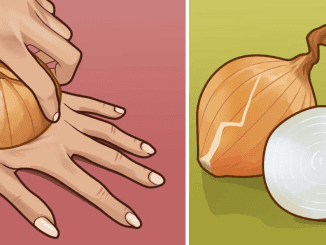Aging comes with many wonderful attributes: wisdom, experience, and cherished memories. But it also brings certain physical changes, including a distinct body odor commonly referred to as “old person smell.” While this term might sound unflattering, science confirms that it’s real and caused by specific chemical changes in the body. The good news? There are ways to manage it effectively without compromising on dignity or respect.

What Causes ‘Old Person Smell’? The Science Behind It
This unique odor, scientifically linked to a compound called 2-nonenal, develops as a result of natural aging processes. As we grow older, our skin produces more fatty acids while antioxidant levels decline. This imbalance causes the fatty acids to oxidize, releasing nonenal—a chemical responsible for the slightly musty, oily scent associated with aging.
Nonenal tends to linger on the skin, even after thorough washing, and primarily exudes from the chest, back, and other areas of the body. It’s important to note that this odor has little to do with personal hygiene and more to do with the body’s natural biochemistry.
Factors That Intensify the Odor
While nonenal is the primary culprit, other factors can exacerbate the smell:
- Medications and Illnesses: Certain medications or chronic conditions common in older adults can contribute to changes in body odor.
- Clothing and Fabrics: Nonenal easily clings to fabrics, so clothing can retain the scent even after being washed.
- Diet and Dehydration: Dehydration and diets lacking in antioxidants can exacerbate the oxidation process, intensifying the odor.
Interestingly, a 2012 study suggests humans may subconsciously detect the smell as part of an evolutionary trait to discern age and health status, much like animals do.

Cultural Perceptions of ‘Old Person Smell’
In Japan, this phenomenon is widely recognized and referred to as “kareishu.” The Japanese culture has normalized discussions around it, and companies have developed specialized products, such as body washes and deodorizers, designed to combat nonenal. Some of these products even include persimmon extract, a natural ingredient said to neutralize the compound effectively.
The global rise in awareness around this issue has inspired a broader range of solutions, from innovative hygiene products to lifestyle changes aimed at reducing the smell.
How to Address and Minimize ‘Old Person Smell’
While aging and the changes it brings are inevitable, there are practical and respectful ways to manage the effects of nonenal. Here are some tips to help reduce the odor:
1. Prioritize Skin Care and Hygiene
Although nonenal is resistant to washing, maintaining proper skin hygiene remains essential. Using products specifically formulated to combat nonenal, such as persimmon-based soaps, can help neutralize the compound.
- Exfoliate Regularly: Gently exfoliating the skin can remove excess oils and dead skin cells that may harbor nonenal.
- Target Key Areas: Focus on the chest, back, and other regions where nonenal is most likely to accumulate.
2. Wash Clothing More Frequently
Nonenal clings to clothing and fabrics, so laundering clothes regularly is crucial. Use detergents designed to eliminate odors effectively.
- Air Out Fabrics: Fresh air can help dissipate odors trapped in clothing, linens, and upholstery.
- Deep Clean Bedding: Wash sheets, pillowcases, and blankets often to prevent odors from building up over time.

3. Maintain a Balanced Diet
A diet rich in antioxidants can counteract oxidative stress and reduce the production of nonenal.
- Foods to Include:
- Berries, oranges, and leafy greens for antioxidants.
- Foods high in omega-3 fatty acids, such as salmon and walnuts, for healthy skin.
- Hydration is Key: Drinking plenty of water helps flush toxins from the body and keeps the skin hydrated, reducing dryness that can contribute to odors.
4. Stay Active and Manage Stress
Exercise promotes circulation, enhances metabolism, and helps regulate hormones—all of which can minimize odor.
- Low-Impact Activities: Walking, swimming, or yoga are great options for older adults.
- Stress Management: High stress levels can disrupt hormone balance, so consider mindfulness practices like meditation or deep breathing exercises.
5. Let Fresh Air In
Stale indoor air can amplify odors. Regularly ventilating living spaces allows fresh air to circulate, keeping the environment fresh and odor-free.
- Use Air Purifiers: These can help remove airborne particles and improve air quality.
- Open Windows Daily: A simple habit that makes a significant difference in reducing lingering smells.
Aging Gracefully with Compassion and Respect
While the term “old person smell” might carry negative connotations, it’s essential to approach the topic with empathy. Aging is a natural part of life, and the changes that come with it should be met with understanding, not judgment.
Instead of focusing on the odor, consider the broader picture: celebrating the wisdom, experiences, and contributions of older generations. As much as managing physical changes is important, showing compassion and respect toward our elders is equally vital.
The Future of Skincare and Odor Management
As awareness of nonenal grows, more innovative solutions are likely to emerge. From advanced skincare products to new dietary supplements, the industry is working to ensure aging adults can maintain their dignity and confidence.
By addressing nonenal proactively, older individuals can feel empowered to enjoy life without worrying about unwanted odors. The key lies in education, understanding, and the willingness to embrace practical solutions.
Conclusion: Embracing Aging with Confidence
Aging is inevitable, but managing its effects doesn’t have to be complicated. Understanding the science behind “old person smell” and taking simple steps—like maintaining proper hygiene, eating a balanced diet, and staying active—can make a world of difference.
Above all, let’s remember that aging is a privilege, and the respect and love we show our elders should never fade. With a little care and compassion, we can ensure that the changes brought by age are met with dignity and grace.


